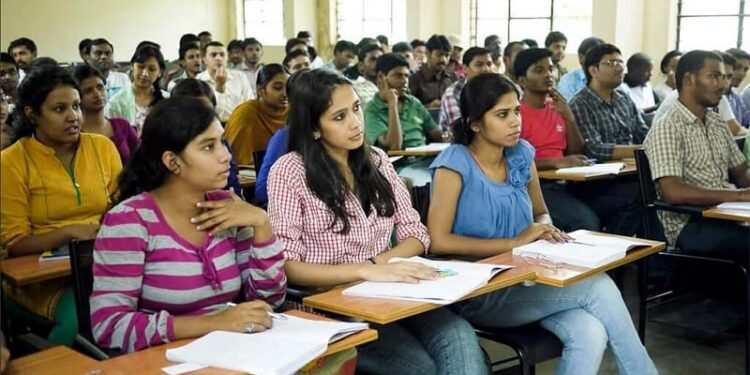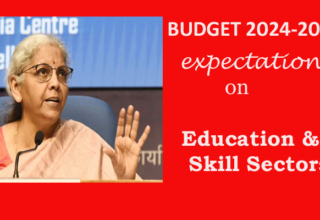
For too long, parental aspirations to control career choices for their children have gotten embedded into the societal culture and they have progressively tightened this grip. This transformation has in some ways truncated their choice for the neighborhood part-time tuition freelancer or the tuition ‘centre’ and ensued a migration of their dreams to coaching shops. Acceleration of this trend, in turn, has led to industrial growth of coaching with a subtle but ‘disastrous’ impact on overall wellbeing of school education and students
The saying that ‘money is the root of all evil’ seems to be true here as this silent migration and preference has stolen good education away from its traditional habitats (schools) and made it a commodity to be purchased at bazars like Kota. The success story of coaching industry has its dark side as well, but is never amplified.
It took years of cajoling and the age of social media for many victims to admit and bring to fore, it is nothing short of a scam in many cases. Like a brand-new car loses a decent value of its price soon after you take it away from showroom, same has happened to thousands of parents/students who want to quit the coaching classes for their disliking or other reasons just after a day. The refund is fraction of what one paid.
Coaching centres must be the original ‘start-ups’ as these expanded exponentially just on ideas and smart marketing techniques. A powerful narrative was built around the success of students taking coaching and hordes of parents just walking into the trap. As this unregulated space really created its own rules, the schools started emptying and losing value. The concept of dummy schools, like the underworld, has been shrouded in secrecy purportedly beyond reach of any authority. The watchdogs who had resources to uncover this are fed up by full page advertisements. So, it looks normal.
If the ‘industrial’ growth of coaching centres powered by their well-oiled dream-selling ecosystem made even the well-meaning and wise parents to opt for coaching in some form, it also meant schools everywhere had no option but to become part of this industry to look trendy. Some opened franchise centres, others just facilitated the classroom bunking. When even the top private schools choose this option, it naturally created a ripple and today there will be only a fraction of secondary school students, who are not enrolled in some form of coaching for cracking of entrance tests. This all actually necessitated regulations.
While some states have already some regulations for coaching centres, but these have looked just on paper. In this backdrop, therefore, the recent Guidelines issued by the union Ministry of Education (MoE), have rightly generated a lot of debate and fears.
These Guidelines, first of its kind, are comprehensive in nature and address most of the issues from registration to facilities, classroom sizes, co-curricular zones and days, fee refund mechanism, penalties and mental health support to be offered by these centres. In fact, it has provided a layout for framing rules. Coaching centres will actually look like schools? The fears are it will create a parallel school system that would actually legitimize the proposition of coaching centres replacing schools. While it is hoped it will not be the Akbar-Birbal story of the man who was tasked to count river waves all day to keep him away from demanding a bribe, the chances are these provisions could be misused unless a clear distinction is made between coaching centres and schools besides defining the competent authority at the earliest.
It is being said that under the MoE Guidelines, a portal may be launched to regulate registration and other requirements, however, the competent authority is yet to be discovered as it is ambiguous. The existing state Acts have brought coaching centres under the domain of Education Departments, but without a perceptible difference. The big and mid-size centres pay GST, issue receipts and maintain books. In simple terms, they are doing a legitimate business and how can an education department regulate if education is not for profit? The best way would be to accord MSME status and enforce rules through district administrations.
The coaching industry had been aiming at young students as young as class 4th and in that context barring those below 16 years of age is actually a huge welcome step. But it must also be made clear that it doesn’t stop tutors or centres in remedial and improvement supplementary education in after-school hours. All this takes us to the doorstep of schools. How about improving schools and school education?
The Guidelines must be an opportunity to educate parents and make them aware about the potential and interest of their children. Along with this an alternative pathway to test prep with school as the focal point make a better option. There is this whole argument around entrance examinations and cut-throat competition for colleges that is really pushing the envelope for parents to begin with. But as said-above, it is now more of a culture thing and the coaching is reinventing itself innovatively and creating opportunities for itself. This makes the task of schools harder.
One of the reform processes already existing in some form in some regions, will be making a cadre of teacher assistants to free time of specialist STEM teachers. These exist as guest teachers, para teachers, and teacher assistants in some places. If the relevant laws are amended and these allowed as a regular feature of schools, it will empower subject and trained teachers by freeing them of routine tasks and help them devote more time to their preparation, skilling and that in turn will raise the teaching standards in classrooms and also bring excellence. The teacher assistant can take up the routine tasks and free time for the specialists. Then these specialists like Delhi Govt mentor teachers can go to other schools as well on assignments, if needed.
For parenting as Neeraj Kumar, Co-Founder & CEO, PeakMind says parents need to be sensitized to the delicate balance between nurturing ambition and safeguarding mental health. They must understand where to draw the line and recognize the subtle but critical warning signs that indicate their child may be struggling.Secondly, students must feel empowered to voice their concerns openly and without fear of judgment. They deserve an environment that fosters open communication and readily offers counseling as a proactive measure, rather than waiting until they reach the last resort. It’s high time to prioritize mental health and create a culture where seeking help is not seen as a sign of weakness but as a courageous step towards healing and resilience.
To conclude, one good thing about the implementation journey of National Education Policy (NEP) 2020 so far is that the system has started loosening its strings of rigidity and regimen and started a thought process for a new paradigm of offering flexibility and soon children may have an agency to pursue career of their choice. However, it will be several years before the school education system actually develops capacity to offer that flexibility. But things have started rolling. As per sources, the government of Madhya Pradesh has become the first state to adopt these guidelines. It is indeed a welcome news. Let’s look forward to more such news.
…Autar Nehru










